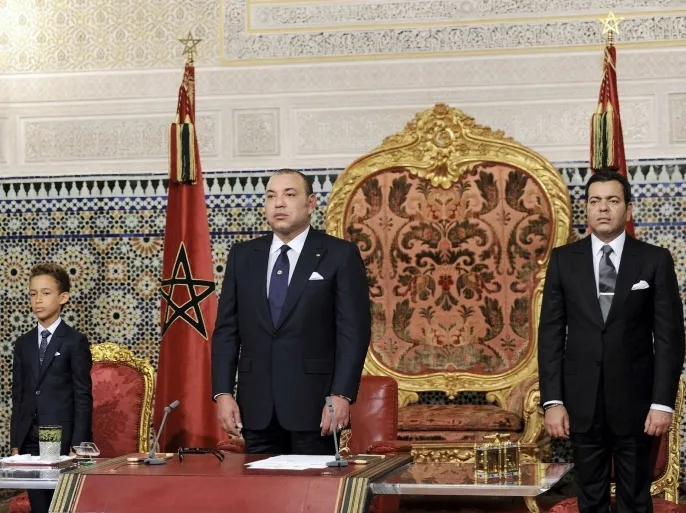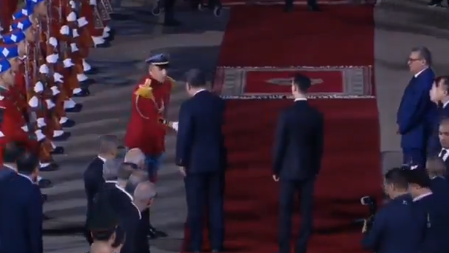Morocco is a country of political contradiction, and the interview with a former head of government show how and why.
Former Moroccan Prime Minister Abdelilah Benkirane stated in an interview with Aljazeera that he has a philosophy that others do not agree with him on, as he does not believe in the saying that “Islam is the solution.” In this context, he considers that the saying “Islam is the solution” contains a contradiction, and asks, “Why is Islam the solution? People’s problems are related to housing, good education, good health services, and other demands.” Benkirane opposed the idea that Islamists can dispute power and rule according to Islamic law, and this is in his view a “dead end,” adding that “what Islamists say is not what they call for: Islam is the solution.”Former Moroccan Prime Minister, who was a guest on the program “Al-Muqabla,” confirmed that he has a philosophy that others do not agree with him on, as he does not believe in the saying that “Islam is the solution.”
Benkirane, who is the Secretary-General of the Justice and Development Party, considers “the conflict between Islamists and the ruling authority a sin,” because it leads Islamists into the labyrinths of seekers of authority throughout history, and whoever seeks authority and rule will either be killed, imprisoned, marginalized, or victorious and ruled. Benkirane believes that the Islamists made another mistake when they interpreted what happened to them in the way of seeking the Sultan as a trial for the sake of God, and he says that this prevented them from paying attention to their mistakes.
The former Moroccan Prime Minister stresses that the role of Islamists is not to seek the Sultan and rule, proving his position by saying, “I did not find in the Holy Quran or in the hadith of the Messenger, may God bless him and grant him peace, anything called seeking the Sultan or rule,” and he noted that he only found the saying of God Almighty: “I only want reform as much as I am able,” meaning that the role of the Muslim is to contribute to reform.
On the other hand, the former Moroccan Prime Minister addresses the issue of normalization between Morocco and the Israeli occupation in his speech on December 10, 2020.
Benkirane responded to a question about the signing of the normalization agreement by an Islamist party (the Justice and Development Party): “We were surprised, as was the whole world, by the signing of Saadeddine El Othmani (the Prime Minister), and none of us had any knowledge, and I personally did not know.”
On the other hand, the Moroccan Islamist described the “Al-Aqsa Flood” operation as “a gift from God Almighty,” because “the Palestinian cause was almost over and Al-Aqsa Mosque was almost lost,” and he considered that the lessons of the Al-Aqsa Flood are endless. Benkirane also reviewed his political career that began in the sixties and seventies, where he began this path in the ranks of the left, then joined the “Islamic Youth” organization in 1976, from which he separated in 1981, to establish with others the “Islamic Group,” and among those who were with him were Mohamed Yatim, Saadeddine Othmani, and Abdullah Baha, leading to the establishment of the “Islamic Group Association” in 1983.
Although politicians who participate in the political process in the country perpetuate the myth sharing political power or the power of the people derived from "elections", the reality points to the fact that all power rests with the King. As colloquial language in Morocco shows, the King's palace is the store of power, makhzen, and the power of the king comes from God, which explains why a 10 year old son of the king is more powerful than an elected head of government: Moroccans bow and kiss the hand of the child future king, and that includes the head of the government who also must bow and kiss the hand of the child.
Aware of problem of seeing a child's hand kissed by everyone including elected leaders, but still wanting to benefit from the gesture of obedience at the same time, the King's Palace launched a PR campaign claiming that the prince does not want to have his hand kissed. If that was the case, the Palace could have made it against protocol to even attempt to kiss the hand. But then, that would force the King to give up a source of power. So, instead, they decided on having their cake and eating at the same time... a common strategy that has been used by the monarch in Morocco to continue to rule and force Moroccans to submit to his rule.








































No comments:
Write comments